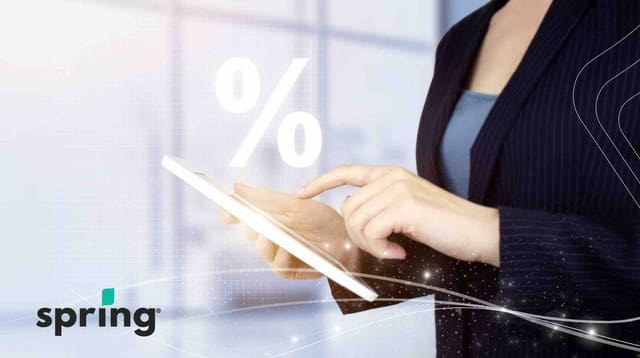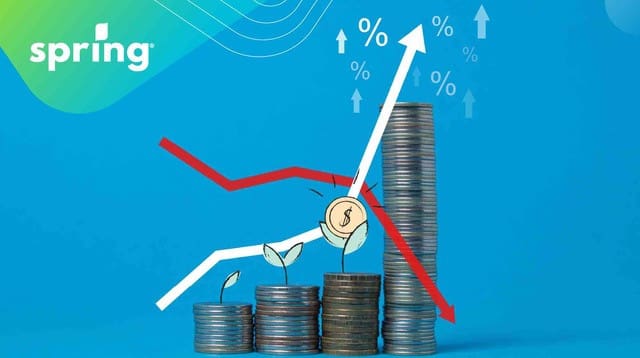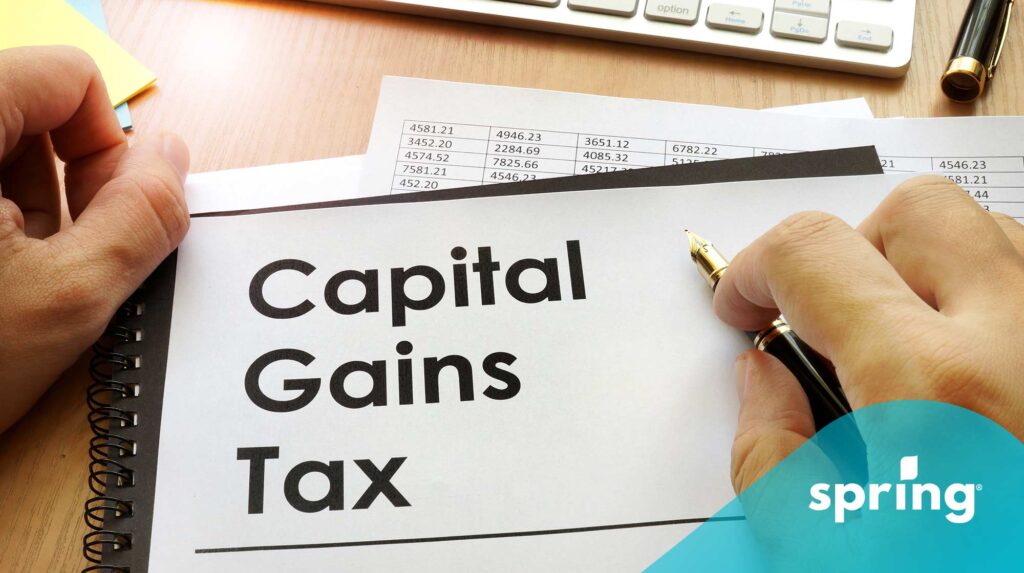When you are deciding whether to get either of these mortgages it is important to understand the benefits and risks of each decision before you finalize anything. It is also a good idea to keep in mind the refinancing penalties if you decide that is something you need to do, as well.
Difference Between Fixed and Variable
When it comes to your mortgage interest, there are a couple of differences between fixed and variable rates. Fixed interest rates are locked in, meaning that your interest and principal payments don’t change over the mortgage term. This term is usually only around 5 years but this may vary depending on the lender you use.
A variable mortgage is a bit different. While variable rates are usually slightly lower than fixed rates, they fluctuate throughout the mortgage term. They change with the bank’s prime rates. This is where you are taking a slight risk and want to do some research before locking in a variable mortgage. While rates can go down with a variable mortgage, they can also go up. This means the payment that you originally agree to will change depending on the current prime rates.
Fixed Rate Mortgages Vs. Historical Variable Rate Mortgages
Choosing between a fixed rate and variable rate mortgage can be a very difficult decision. In order to choose the best one for you, you need to look at more than just the numbers in front of you. You also need to look at the long term.
| Interest | Positives | Negatives |
| Fixed | With a fixed rate mortgage your payment stays the same throughout the term you sign for. This means that you don’t have to worry about your payment changing. | You may be paying substantially more for a fixed term than a variable term. |
| Variable | With a variable mortgage you often end up paying much less interest over the full term of your mortgage. This is usually over a term of 25 years. | Your short term payments could be much higher if prime rates increase significantly. |
Overall, there are benefits to both types of mortgages. What you choose to do is dependent on the current rates, your financial situation as well as the current state of the economy.
Current Fixed Rate Mortgages Vs. Current Variable Rate Mortgages
While historically fixed mortgage rates end up costing more than variable rate mortgages, the current difference between fixed and variable rates is minimal. At most it’s only somewhere around half a percentage. This, paired with the fact that prime rates are still increasing in order to combat the current inflation rates, it may be better to get a fixed rate mortgage.
That being said, you are only locked in for a term for likely only 3 to 5 years. Once it is time to refinance, then you can always change from fixed to variable. If, at any point, you decide to go with a variable rate mortgage or you already have one, you should check with your lender to verify if you are able to lock in your variable rate at all. If so, now (2022) may be the time to do that.
Locking in Variable Mortgage Rates
With some mortgage lenders, you are able to lock in your variable rate at any point during the term. You may want to do this if there is a significant increase in prime rates with no relief in the foreseeable future. You may also want to consider this option if the payments are starting to get to a point where they may become unaffordable.
With the current increase in inflation and prime rates, many homeowners are choosing to refinance or lock in their variable mortgage. This is because rising interest rates are making variable mortgages unaffordable for some people. Variable rates don’t usually change as drastically as they currently are which is why locking it in may be a good idea. At this point there is no known time when prime rates will reduce but it doesn’t look like it will be this year (2022). While there is normally a few percentage point difference between variable and fixed rate mortgages, currently the difference is only half a percentage point or less.
How Payments on Variable Mortgages Work
Depending on the lender that you use, there are two ways that variable mortgage payments can work. The first way is that your mortgage payments fluctuate depending on the current interest rates. This means there is no locked in amount. If you can afford it, variable mortgages can save you money over time but it all depends on what the current rates are compared to fixed and if it makes the most sense.
Some other lenders allow you to get a variable mortgage where payments stay the same, but interest to principal ratios will change as the interest rate changes. The way this works, is your monthly mortgage payments won’t change unless your interest payments end up costing more than the set payment. Only then will it increase.
Fluctuation of Variable Rate Mortgages
With a variable interest rate mortgage, it is difficult to determine when the rates and payments will change. It could be monthly, every 6 months or even annually. It all really depends on when the prime interest rates fluctuate. An example of a variable interest rate is (prime plus 1%). Say when you signed for your mortgage the initial interest rate was 2% since prime was at 1%. A year later, interest rates rose and prime is now 2%. That 2% you started with is now 3%,
Variable mortgages can also work the other way around, though. If prime drops from 1% to .8%, then your interest rate then drops to 1.8%. These fluctuations are what have, historically, made variable interest rates much cheaper than prime rates. Whether interest rates rise or fall, they end up evening out over time.
Canadians with Variable Rate Mortgages
How many Canadians have variable mortgages fluctuates depending on the state of the Canadian economy. Prior to 2020, only around 20% of Canadian mortgages were variable. Once the pandemic started and through to mid 2021 around 50% of Canadian mortgages issued were variable. With interest rates continuing to rise, this means that mortgage payments are going to steadily become more expensive for many Canadian homeowners.
Switching from a Variable Mortgage to a Fixed Mortgage
In short, yes you can convert your mortgage from fixed to variable. With such a large increase in interest rates, many Canadians are looking into doing this before their mortgage has become unaffordable. Currently, prime rates are sitting at 3.75% and expected to go up next month and continue into 2022.
The first option when it comes to locking in your interest rate or switching from a variable mortgage, is to convert it into a fixed mortgage. In order to do this, all you need to do is contact your current mortgage lender. That being said, doing this will lock you in for the remainder of your mortgage at current fixed interest rates. For example: being 3 years into a 5 year term, you will need to lock the interest rate in for 2 years. However, because you are using the same lender, there will likely be no penalty.
The second choice you have is to refinance for another term. Doing this allows you to shop around for the best rates with a different lender. It does mean, however, that you will have to pay a penalty for ending your mortgage early. There are often some other fees involved with refinancing a mortgage. It is possible that you may not even get a better rate and still have to pay a penalty.
Lastly, you can always just wait it out. In some cases, it could be that your variable mortgage is still worth it to you to keep instead of locking in a fixed rate or refinancing. It just depends on if you can afford to make the payments and if it will end up being cheaper in the long run. It also depends on where you are in the mortgage term and how much is left on your total mortgage. All of these numbers will make a huge difference in your decision.
Open and Closed Mortgages
When you are choosing a fixed or variable mortgage, another thing that can make a difference is if the mortgage is closed or open. An open mortgage allows you to put money down on the principal whenever you want. With a closed mortgage you are only able to put a certain amount down on the principal per year without a penalty.
Another distinguishing feature between an open and closed mortgage is when you can refinance. Whether your mortgage is fixed or variable, an open mortgage allows you to refinance at any time without a penalty. While the interest rates tend to be a little higher with an open mortgage, refinancing at any time can end up saving you money when interest rates start to rise. A closed mortgage will have a lower interest rate, but there will be a penalty if you end up refinancing early.
Overall, Which is Better? Fixed or Variable?
When you are deciding on which mortgage interest rate is best for you, looking at the long term as well as the short term is important. With today’s mortgage stress test, it is much more difficult to get a mortgage so if you are able than it’s likely accounting for an increase in interest rates. That being said, interest rates are increasing quickly right now and whether you choose to go with a variable or fixed rate, you need to account for high interest rates on top of high home prices.
Instead of just looking at what your monthly payments will be, keep in mind the predicted interest rate changes as well as the overall impact the rates could have on your total mortgage. It is also important to remember that you are only locked in for a few years. You can make some changes or you can take on a different choice when you refinance. Honestly, your life and circumstances are just going to keep changing so your choices may not be the same as they were before, or could be different in a few years.
In today’s economy, interest rates are higher than we have seen in many years making this a much more difficult decision. Take into consideration what the overall rates will be, if a locked-in payment is the best for you and how much you have left to pay on your mortgage. This will help you to make the best overall decision for you and your financial situation.
Getting a Mortgage with Spring Financial
Did you know that, while Spring Financial offers personal loans, they also offer mortgages? Whether you are looking to get a new mortgage, refinance or even tap into your home’s equity to help with debt consolidation, we can help with that. All you need to do is apply online and one of our licensed agents will be able to help you find the best option for you. You can also give us a call at 1-888-78-8439 or talk with an agent on our live chat.








